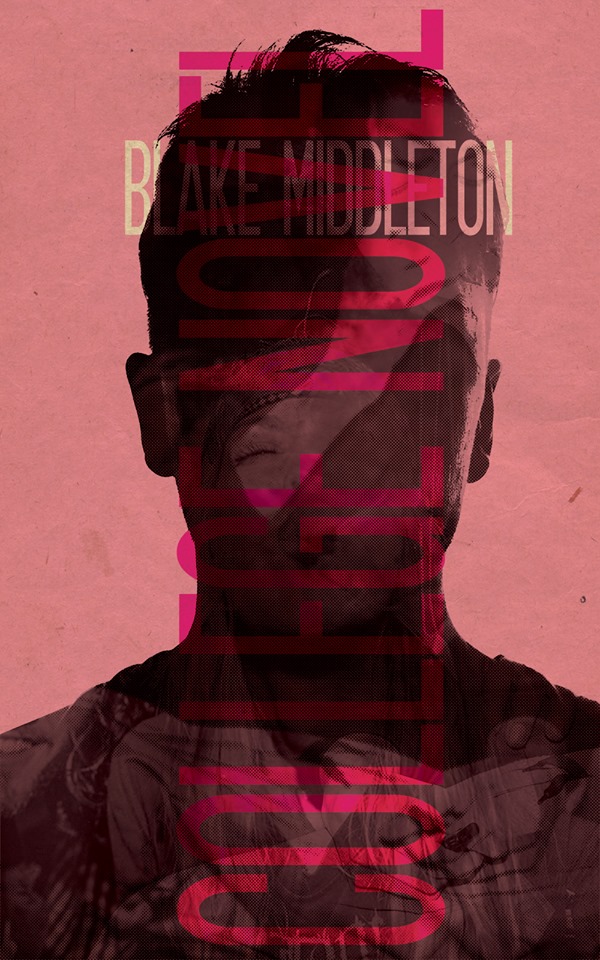
“Just as Frankenstein’s creature turned against its creator,” writes Jon Savage in Teenage: The Invention of Youth Culture, “so could the young of the West turn against their parents and institutions.” To give a tiny bit of context, Savage was writing about the children of the Industrial Revolution, people who lived over 200 or more years ago, and the realization by thinkers like Jean-Jacques Rousseau and writers from Goethe to Dickens that young people were just that: young people.
The characters in Blake Middleton’s College Novel are young students in landlocked Jacksonville, Florida. They’re past that stage where they’ve turned against their parents and whatever ideals society placed upon them; that revolution is long over. The world has already beaten them down a good deal. Middleton’s cast are the burnt out millennials that Anne Helen Petersen wrote about in her viral BuzzFeed essay, but with a bored, pop culture-obsessed Gen X. frame of mind. When we first meet Jordan and Eric, they’re sitting around discussing where they want to die. Jordan says he wants to die at Six Flags because it’s “the funnest place to die.” Eric says he wants to die in North Korea. Then Audrey joins them, and talk turns to unionizing her fast food restaurant. They all have jobs they hate. Eric works at a Winn-Dixie, telling Jordan, “You missed your chance to work with me. We hired some guy named Bobby that worked at a Chili’s for ten years but doesn’t know what a Cobb salad is.” The two discuss what a Cobb salad is, and then switch the conversation to whether they can return a PlayStation time card to a different Walmart than the Walmart it was purchased from. Robert tells his friend he needs to quit drinking. I’m gonna get sober and eat Cobb salads all day. I really want a Cobb salad right now.” This is a modern existence, and Middleton portrays it well. His grasp on dialogue is what makes College Novel worth your time. You get the feeling Middleton knows and has paid close attention to all of these people, and the characters are thinly-veiled caricatures or composites.
There is a comparison on the back of College Novel that I’ll admit drew my attention. In his blurb, the writer Brian Alan Ellis says Middleton’s book is like “a millennial adaptation of an early Richard Linklater film,” and I couldn’t find that comparison more true or fitting (see: blurbs do work). All throughout reading this novel that felt so familiar to me—a former going-nowhere 20-something, turned 30-something afraid of both what the world is becoming and what I might be turning into as I grow older and hope to avoid the same mistakes I saw people who were once my age make—I couldn’t help draw comparisons to the films I watched in the 1990s. Linklater is one, Kevin Smith is another comparison that comes to mind as the characters talk about bands like Operation Ivy and American Football, and the pop culture that is important to them. There’s also a silly emptiness to the things they say, something every teen and 20-something is guilty of, but only smart writers realize and adequately portray in their work. “When Bernie Sanders becomes president I’m going to request that all parties have large fires and Adderall,” one character says in a line that bridges Smith with a line that could come from an updated version of 1995’s Kids if it were set in a hot college town. Middleton’s characters get fucked up and seem to enjoy it because there’s not really much else to do or derive pleasure from.
There was a time when a novel like Middleton’s might have picked up some steam and frightened some people into thinking that there’s a possibility that it’s an accurate fictional portrayal of America’s youth. Books like Catcher in the Rye, Less Than Zero, or films like Spring Breakers serve as perfect examples of work that frightened the masses but felt comforting to a few, like their screwing up or lack of cares about the world was mirrored by the fictional characters they read about or watched. In a recent article about Less Than Zero published by the Guardian, Ottessa Moshfegh writes that what the novel that shot Bret Easton Ellis to fame does so well is, “harnesses that ineffectuality with minimalism, compressing ennui into dread, and then into horror.” It’s easy to compare a book like Middleton’s to Ellis’s debut. College Novel similarly pressed ennui into dread. But the thing is that we’re so far past the horror that Ellis was pulling out; the world is terrifying and messed up. In Ellis’s book, the young people are numb because they have everything, but they have nothing; Middleton’s young characters have nothing because that’s what they’ve been left with. That’s what makes College Novel so haunting, but also something totally different than all the things you might be able to compare it to.
***
College Novel
by Blake Middleton
Apocalypse Party; 134 p.
Follow Vol. 1 Brooklyn on Twitter, Facebook, and sign up for our mailing list.
